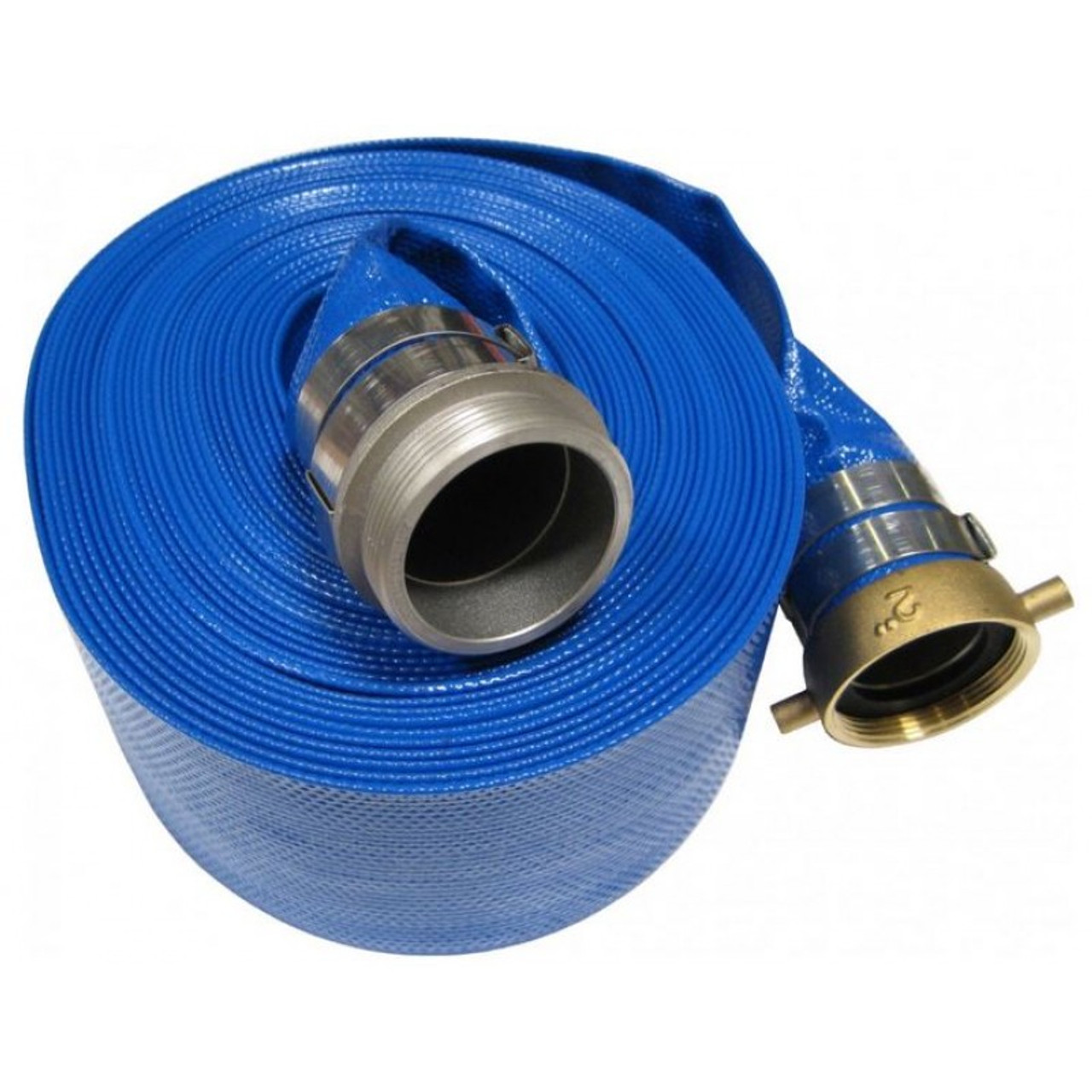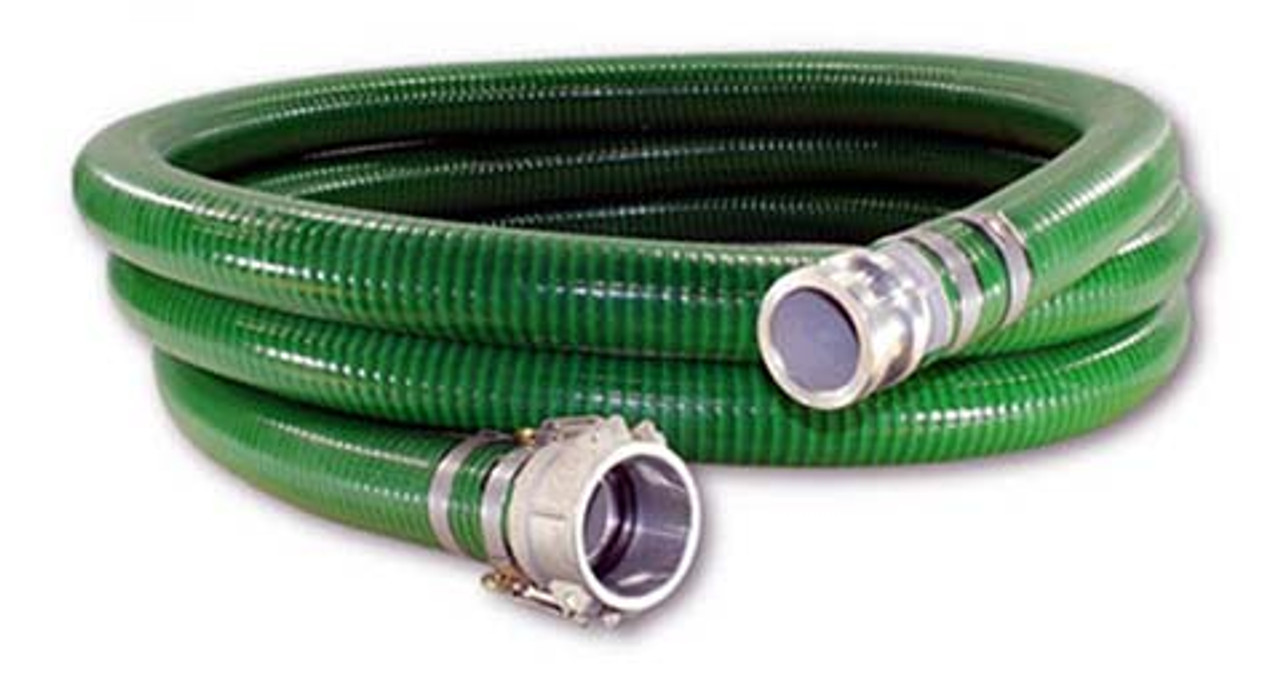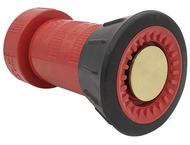Here are the key factors to consider when choosing a hose for your dewatering pump.
Understanding Dewatering Pump Hoses
Dewatering pump hoses are designed to transport water from one location to another efficiently. They come in various materials, sizes, and configurations to meet the diverse requirements of different applications. The primary purpose of these hoses is to provide a reliable and flexible connection between the pump and the discharge point, ensuring the water is effectively removed from the site.
Factors to Consider When Selecting a Dewatering Pump Hose
Material Compatibility
The material of the hose is a crucial factor in ensuring its compatibility with the fluids being pumped. Dewatering pumps are commonly used for transferring water, but in some cases, they may handle abrasive or chemically aggressive liquids. Common materials for dewatering pump hoses include PVC, rubber, polyurethane, and lay-flat materials. It's essential to choose a material that can withstand the specific conditions of your application.
●PVC: PVC hoses are lightweight and cost-effective. They are suitable for general dewatering applications but may not be the best choice for abrasive environments.
●Rubber: Rubber hoses provide excellent durability and flexibility, making them suitable for various pumping applications. They are resistant to abrasion and can handle a wide range of temperatures.
●Polyurethane: Polyurethane hoses offer a balance between flexibility and durability. They are resistant to abrasion and can handle moderate chemical exposure, making them suitable for more demanding applications.
●Lay-Flat: Lay-flat hoses are designed for easy storage and transport due to their flat, compact nature. They are often used in temporary dewatering setups and are available in various materials.

Size and Diameter
Selecting the right hose size and diameter is crucial for optimizing your dewatering pump's flow rate and efficiency. The diameter of the hose determines the volume of water it can handle, so it's essential to choose a size that matches the pump's capacity and application requirements. Smaller diameters may restrict flow, while larger diameters can lead to inefficiencies and excessive weight.
Consider the pump's discharge capacity and the distance the water needs to travel when determining the appropriate hose diameter. It's advisable to consult the pump manufacturer's specifications to ensure compatibility with the chosen hose size.
Pressure Ratings
Understanding the pressure requirements of your dewatering pump is paramount when selecting a hose. Different pumps have varying pressure capacities, and using a hose that cannot withstand the pump's pressure can lead to leaks, inefficiencies, and premature hose failure.
Check the pump's specifications for its maximum discharge pressure, and choose a hose with a pressure rating that exceeds this value. It's crucial to consider potential variations in pressure during operation, such as surges or fluctuations, to ensure the hose can handle these conditions without compromising performance.
Length and Flexibility
The length and flexibility of the hose play a vital role in determining how easily you can set up and maneuver your dewatering pump. Consider the distance between the pump and the discharge point, as well as any obstacles or bends in the path. Opt for a hose length that allows easy installation without excessive coiling or stretching.
Flexible hoses are advantageous when the pump needs to be moved frequently or when navigating tight spaces. However, it's essential to strike a balance, as excessive flexibility may compromise the hose's structural integrity.

Temperature Resistance
Consider the environmental conditions in which your dewatering pump will operate, including temperature variations. Hoses exposed to extreme temperatures can become brittle, crack, or degrade over time. Ensure that the selected hose material and construction are suitable for the anticipated temperature range of your application.
If your dewatering pump is used in colder climates, choose hoses with good cold flexibility to prevent stiffness and potential damage. Conversely, for applications in hot environments, select hoses that can withstand elevated temperatures without compromising performance.
Abrasion Resistance
Dewatering pumps are often employed in challenging environments where abrasive materials may be present. The hose's resistance to abrasion is crucial for maintaining durability and preventing premature wear. Look for hoses with reinforced constructions, such as fabric or wire reinforcement, to enhance abrasion resistance.
Consider the specific conditions of your application, such as the presence of rocks, gravel, or other abrasive materials, and choose a hose that can withstand these challenges. Sacrificing abrasion resistance can lead to frequent hose replacements and increased operational costs.

Chemical Compatibility
In some dewatering applications, the pumped water may contain chemicals or be exposed to substances that can affect the hose material. It's crucial to assess the chemical compatibility of the hose with the fluids it will come into contact with. Consult the hose manufacturer's specifications and chemical resistance charts to ensure that the chosen hose can withstand exposure to specific chemicals without degradation.
If your application involves pumping potentially corrosive liquids, consider hoses with special linings or coatings designed to resist chemical damage. This proactive approach can prevent safety hazards and extend the hose's service life.
Ease of Maintenance and Storage
Maintenance and storage considerations are often overlooked but are critical for the long-term performance of dewatering pump hoses. Opt for hoses that are easy to clean, as accumulated debris can affect flow rates and lead to clogging. Additionally, consider the ease of storage when the hose is not in use. Lay-flat hoses are particularly advantageous in this regard, as they can be rolled up and stored compactly.
Proper storage practices, like avoiding exposure to direct sunlight, extreme temperatures, and sharp objects, can significantly extend the lifespan of your dewatering pump hose. Regular inspections and prompt replacement of worn or damaged hoses are essential for preventing unexpected failures during operation.

For a comprehensive collection of high-quality hoses for water, including 1.5 suction hoses, trust TMS Equip. Browse our range and select the right hose for your specific needs! We also have several kinds of dewatering pumps, like centrifugal clear water pumps and high-pressure pumps.
Sign up on our website and select the right hose for a seamless and efficient project experience.


